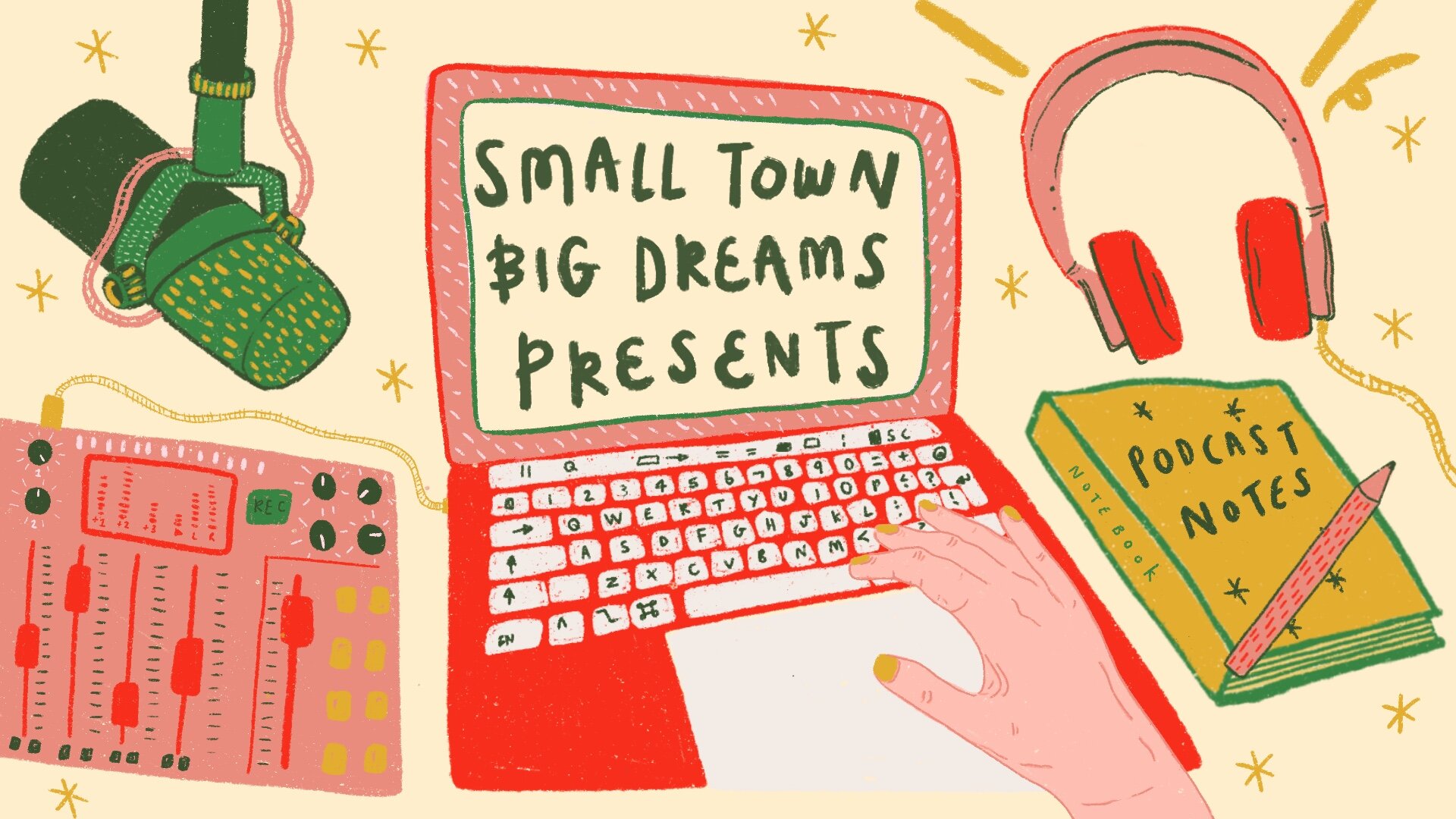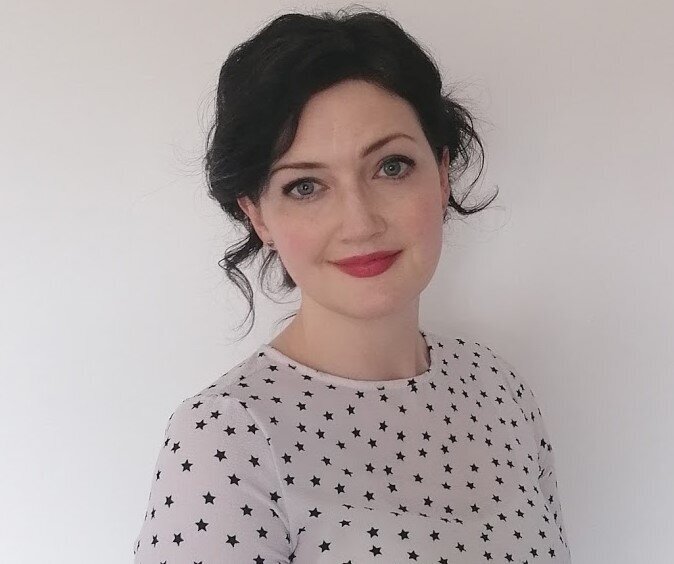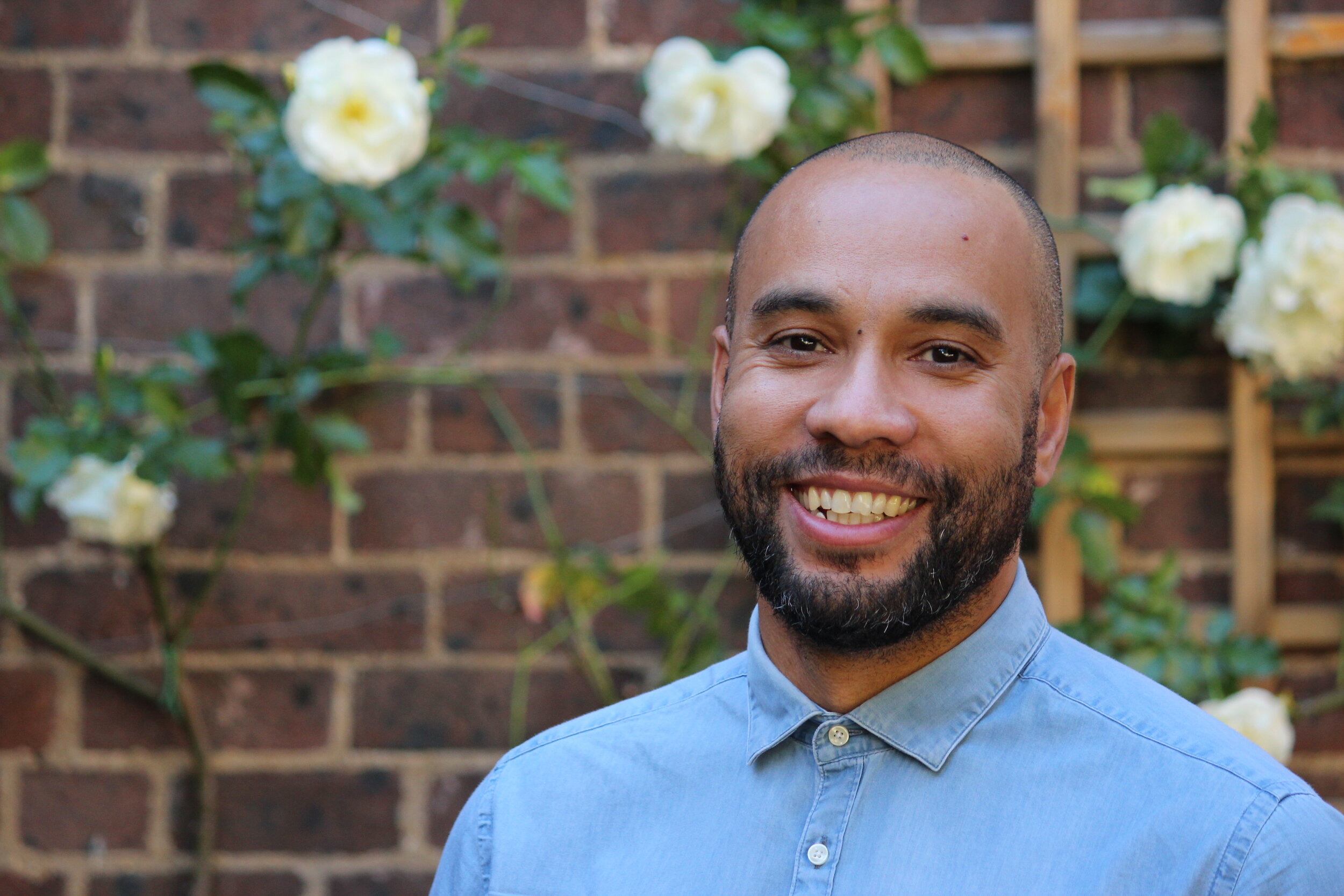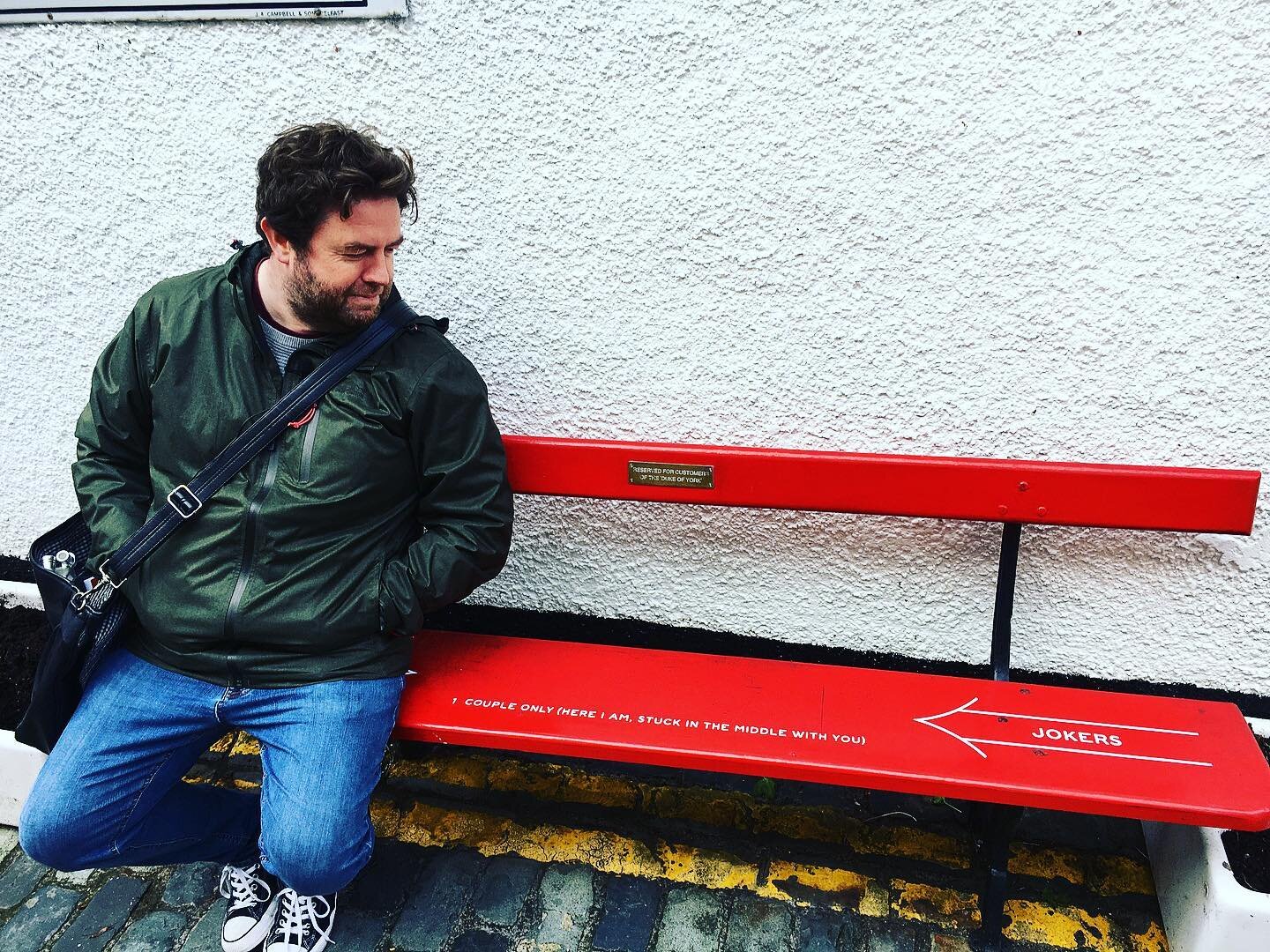Guide to DIY Podcasting: Resources & TIPS




A huge thank you to everyone that joined us for our Guide to DIY Podcasting on Saturday 27th March for The Nerve Centre!
As a followup, we wanted to share some of the advice and resources we noted during the chat with our 3 fabulous guests Jeananne Craig (All Change Please), Andi Jarvis (Strategy Sessions) & Graeme Watson (STBD + Inside John Patrick Higgins).
As you read on you’ll find:
The World Turned Upside down presentation
Resources
General Advice
Your questions answered
RESOURCES
Our guests shared a selection of equipment, software and platforms that they use to record, edit and share their podcasts and we thought this would be a great first stop for you. As this is a DIY Guide, it is very much with the proviso that you are thinking of “bootstrapping” or creating a low budget podcast and so we have considered that in what we have shared below!
Equipment & Software
Microphones
Blue Yeti Nano
Beringer
Tascam
Zoom
Smartphone
Remote recording software
Squadcast
Zoom
Skype
Podbean
Editing software
Audacity
Adobe Premiere
Garage Band
Resolve
Soundtrap
Transcription Software
Otter.ai
SoundTrap
Marketing & Promotion
Podcast Hosts
Soundcloud
LibSyn
Buzzsprout
Anchor
Podcast Platforms
iTunes
Spotify
Podcast Apps
Youtube
Other ways of sharing
Website
Social Media
Newsletter
Press Releases
GENERAL ADVICE
Our guests had a wealth of knowledge to share on the podcast so this is a summary!
All you need to begin is an idea, a computer/smartphone and somewhere quiet, a room with soft furnishings for example.
Don’t let distance stand in your way, use the power of remote recordings to link in with local and international guests.
Do connect with local creatives to create a great brand and podcast imagery.
Respect guests’time and be as flexible as you can! Most people don’t mind giving an hour of their time.
When covering a niche topic, think “inch wide, mile deep” in that, you can be focused about what you are talking and give a lot of rich detail about it.
Don’t wait to get started, it’s ok to make mistakes, improve and develop your podcast as it grows.
Create a “storehouse” of ideas which you can pick from as it can be difficult to come up with things on the spot.
Listen to lots and lots of podcasts and of many different kinds so that you get a better understanding of what it is you’d like to do.
YOUR QUESTIONS ANSWERED
As you know we had LOTS of questions and so here are the answers to the ones that we couldn’t get to on the call!
Please note: We have anonymised the questions.
What do you think of the app Stereo? I like connecting with other people and listening into other conversations. Do you think freedom is the future of podcasting?
We haven’t yet delved into Stereo - but live podcasting and “listening in” with apps such as Clubhouse is definitely becoming increasingly popular. Twitter is also getting in on the action and will be launching Twitter Spaces soon. Over the past year when people have missed the in-person interactions they would get at live events from their audiences or from each other, these new platforms have filled a need for many. Interactive content is hugely popular, even through other social channels like TikTok.
Regarding Freedom: The accessibility, the DIY-ness and the affordability of the medium of podcasting does enable freedom, so yes it is the future of it, but freedom is also what podcasting has and is already doing really well!
One suggestion for delivering information is ‘to speak slower than you normally would’ is this something others put into practice or not?
When people are nervous, they tend to speak a bit faster than normal, so speaking slightly slower does help with vocal clarity. However, it is really important to have an authentic voice and while everyone can vary how they speak to create clarity, interest, drama or “flavour” (listen to this great podcast episode by Marie Forleo and Roger Love on the topic), one of the really brilliant things about podcasting is that the medium does reflect a range of accents, vocal styles and ways of delivering stories and information. Authenticity is the name of the game!
Is there somewhere you can upload your podcast and it will go onto everything at once (Acast/Spotify/Itunes etc) ? Or does it have to be done individually?
You can upload your initial podcast content to a hosting platform like SoundCloud and then migrate it from there to Spotify, Google and Apple Podcasts/iTunes - but you do have to create accounts with these hosts to connect your hosting platform’s feed to these podcast directories. Once your podcast is connected up, each time you upload a new podcast episode to your hosting platform, it will relay it directly to the directories.
However those are just 3 examples of the many directories that can share your podcast, not to mention podcast aggregators and apps. Once you have linked your podcast to the main directories, you’ll find that it will also become available in some of those apps, but for others you will need to link your hosting platform to their directory. The more platforms your podcast is on, the better, and don’t forget the video platforms like YouTube!
To have audio in the background of your podcast... is there somewhere you can take sounds from/has a bank of sounds that wont bring up copyright issues the way songs would if used on Youtube etc.?
There are lots of different ways of adding free or affordable audio, a few tips are:
recording your own environmental sounds - eg. if you are doing a podcast about a river, take a walk around a river with a recorder - easy peasy, but don’t over do this!
free music platforms - as you mentioned, Youtube does have a free sounds library and there are also other royalty free platforms out there (Buzzsprout has this helpful list). You have to check each of their terms when it comes to copyright as each one is different. Some require you to acknowledge the source of the music which you can share in the podcast text and also in any end credits.
affordable music platforms like Epidemic Sound also exist and have a wider and higher quality range of content
if you have a budget, it is always worth seeing if any local musicians could be brought in for things like a podcast jingle or interludes. Chordblossom does some great lists of local music online to find out what musicians are doing here in NI.
Does Small Town Big Dreams encourage submissions of ideas from anyone? And if you want to start your own podcast would the Small Town Big Dreams team encourage shadowing from creatives to gain experience in podcast making?
We aren’t currently taking in any ideas (sorry!). However, we would love to be in the position where we can do that though, so do watch this space!
It is really helpful to see what others are doing and really important to listen to a wide variety of podcasts to know what you like vs knowing what you would like to make. If you are able to link up with local radio stations or local podcasters that are already producing to shadow them, this could go some way to help you fully understand the process of pod-making. BUT - the BEST way of learning is mocking up a pilot podcast yourself with basic equipment and free software. This will give you an idea of what you enjoy and are good at, what you need to work on and also how long it takes to do it all!
What relationship do independent broadcasters have with the BBC and other broadcasters?
Independent broadcasters and production companies typically have to pitch ideas to established organisations. It helps to have a sample of what you are trying to make, a strong social media and web presence and to be really professional when it comes to approaching them. Note - we haven’t made the approach yet!
You’ll also find companies like Spotify, Audible etc. put out calls for new podcasts now and then, so it is worth following their news - Twitter is usually great for this - to see if they have any schemes / pitching events / competitions / applications.
Any of you worked with children on podcasts? If so, any advice? Also assume nursery rhyme music is not subject copyright?
Unfortunately, we haven’t worked with children on podcasts so aren’t the right folks to advise you on this. It might be worth asking a podcast host that does work in this area about the rules and regulations around this.
Regarding nursery rhyme music - this would depend on who has recorded it - as even though the songs themselves are widely sung and listened to, musicians or recording artists may have copyright over the content, so always better to check! Or even better, record it yourself!
Do any of you use specific white hat or grey hat SEO techniques to marketing your podcasts?
We use the same techniques as we would with other promotion eg. events, blogs etc. and they tend to be organic and white hat SEO techniques along with some paid promotion of events or specific calls to action to help visibility on social platforms.
Some things we try and do at STBD:
Backlinks - featuring STBD content on some of our other platforms
Guests sharing your content - we do request and tag guests in our posts to spread the word
Key words & Tags - relevant and changing to current trends
Blogs - showing behind the scenes
Again, authenticity is key and it is better having fewer but more dedicated and consistent listeners / audience that you can build upon!
If someone has ideas for a podcast and wants to write/design it, creatively edit it, but then get someone (individual or company) to technically edit and do everything else, what cost is involved, how much for doing a whole podcast?
And what about copyright, who then ‘owns’ podcast. How does that partnership work?
If you are hiring freelancers or other parties to do a very specific part of your podcast but you want total ownership over it, you’ll have to make sure that your requirements are clear and that you have a contract that covers that ownership. It is really important to know exactly what you need help with before making the ask and it helps to write up a brief sometimes.
Cost-wise - there are lots of great local copywriters, editors, musicians and creatives of all kinds to work with, but they will need to be factored into your product budget and each person’s rate per hour or project rate is different.
If your budget is smaller, or you need something very specific like translation, or scripting your podcast, there are also sites like Fiverr that can be very affordable.
Often, when starting out, podcasters will try and do as much as they can themselves to keep the process low budget. There are tons of helpful videos online to help teach specifics of the basic recording process.
I'm finding it hard to draw that line between "too much information" but still trying to leep it authentic. What advice would you give about maintaining the authenticity of a pod against alienating a prospective audience?
The beauty about podcasts is that you are able to dive into niches really well. As podcasts can go global, those niches can translate into a significant audience. Stay true to yourself and be as authentic as you can. Do edit back - it can really help to have a few trusted (but honest) people you can send a pilot episode to to give you some feedback eg. does it make sense? is it too short / too long? is it interesting?
If you find your topic is in-depth and requires a lot of explanation, it can be helpful to split it up into lots of mini topics:
Eg. Episode 1 - Big subject area summarised / Episode 2 - My Story and focus / Episode 3 - Did you know about <topic>… etc. etc.
I would like to ask the panel thoughts on making a podcast in a multi-media way, getting various usage out of each ‘podcast’ as a way to create multiple bits of content to use within a small organisation.
100% - once you make it once, do make the most of it. Use it again in different ways, use quotes from episodes, do summaries, do blogs and make the most of it. What we have found recently is people doing both video and audio podcasts as they are recording remotely. For example, you’ll see the Zoom uploaded onto Youtube and then the audio uploaded as a podcast.
How do you monetise your podcast?
This is a big question that gets asked a lot and it is very hard to monetise podcasts, especially when first starting out.
Some ways you can monetise your podcasts, or even get some funding to get off the ground are:
grants - locally NI Screen and Arts Council NI are two funders to explore, but there are many more.
paid advertising - you can get sponsors on board relevant to your podcast / brand / theme and insert their ads into your episodes. You’ll need some proof of audience or listenership for this.
crowdfunding platforms eg. Patreon - if you have a loyal fan base, they can support you through this.
pitching for your podcast to be supported by a bigger podcasting house eg. Spotify.
merchandise and complementary materials - these can be sold alongside your podcast to raise money.
Will the webinar recording be sent out afterwards?
Yes - you’ll be able to see it on The Nerve Centre’s YouTube channel soon here!
